“They say knowledge is power, and incidentally the more I learn about society the more cynical I become.”
~Intro to Sociology student
“To think deeply in our culture is to grow angry and to anger others.”
~Jules Henry, American anthropologist
Using Skype to educate students about refugees
One of my joys as a university professor is teaching Introduction to Sociology to mostly first year students. I talk about my research and writing when appropriate, and this term I have had my students read some posts on this blog, one or two having to do directly with the current refugee crisis.
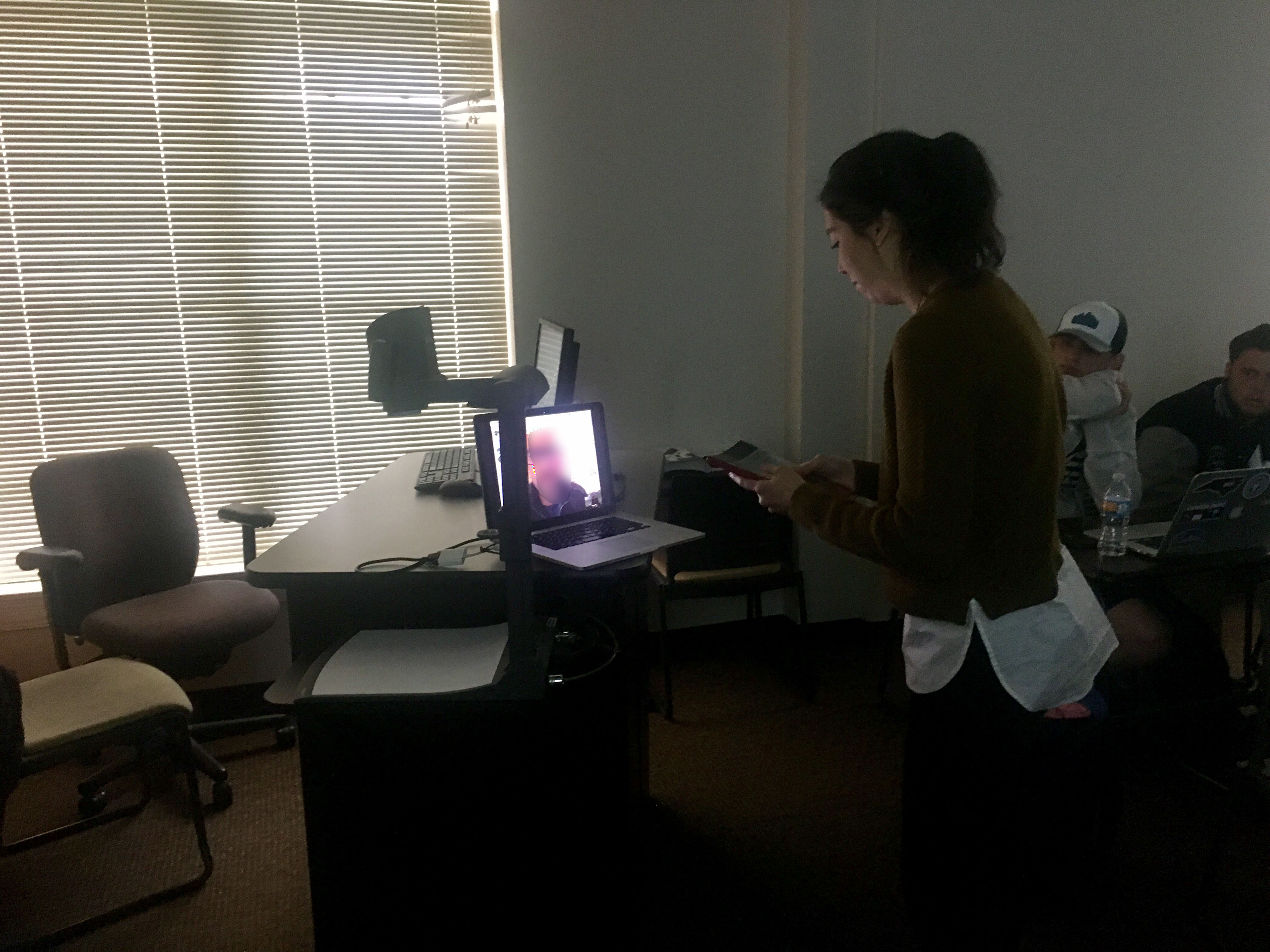
Just before spring break we were covering a text chapter on ‘global stratification’ and were asking questions about the staggeringly skewed distribution of wealth in the United States and around the world. As I prepared for our class discussion a thought occurred to me, ‘why not invite an Evil Genius to my class?’ A few Skype messages flew back and forth between here and Jordan, where J is deployed, and it was arranged.
Below are the questions I sent to J, the man behind the Evil Genius brand, to help him prepare for our Skype conversation with my class. I also emailed these question to my students and told them that they would be invited to ask J questions, as well.
• Where are you and what is your main job?
• How have Jordan and other regional nations responded to the influx of refugees?
• How many refugees are there from the 6 year Syrian conflict?
• What does a refugee camp look like in terms of size, amenities, etc? How do people get food, water, medical attention? Are there schools for the children? What measures are taken to ensure security in general and more specifically related to GBV?
• What are the refugee’s hopes for repatriation, for going back home?
• What is the general response to our new (US) President and his views on cutting back on foreign aid? How will any changes in State Department policies impact what you are able to do?
• From your position as an aid worker in Jordan, what does the future look like in terms of meeting humanitarian needs, both in the Middle East, and more generally around the world?
• What can a well-intentioned university student do to help?
During our 40 minute Skype session most of these questions were addressed. As part of a writing assignment, I had my students respond to this prompt:
Monday we had a Skype guest from Jordan, [named] J. He talked about the refugee situation there and about his organization’s efforts and challenges. What did you learn from J and how did your experience in this class so far help you understand what was being talked about?
Refugee as ascribed status
Earlier in the semester we talked about the concept of ‘status’ making the differentiation between ‘ascribed’ statues such as age, race/ethnicity, and gender that you are born with and those that are achieved though life accomplishments such as college graduate or athlete. In our discussion we noted that this dichotomy bares scrutiny, especially when looking at younger people. For example, is social class ascribed or achieved? You are certainly born into one class position -ascribed- but can later in life ‘achieve’ a higher (or lower!) social class standing.
So, where is ‘refugee’ status in this particular taxonomy? Here is some of what my students had to say [used with permission].
This first one represents many and shows how much they learned from the short conversation. J had made the point that providing meaningful activities helped lower overall stress levels and hence was a way to indirectly lower GBV.
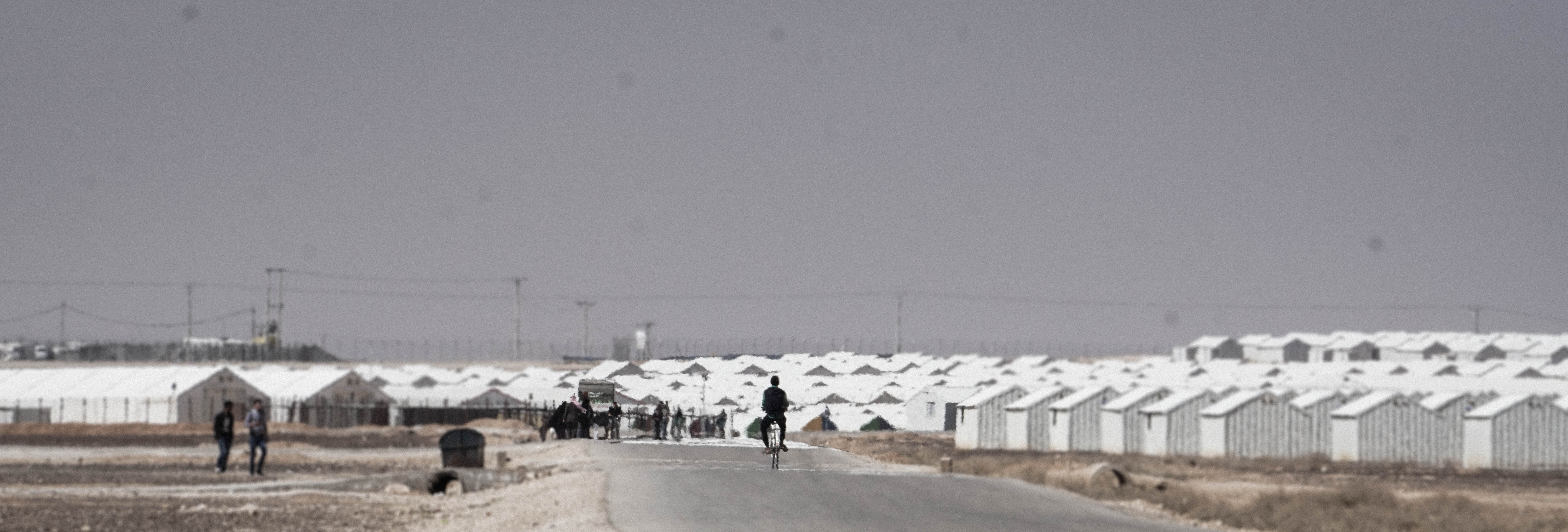
“I was really interested in what he had to say about what he does and about the refugee crisis. The first thing he said that really shocked me was when he said that his organization didn’t have nearly enough resources that they needed to be able to help the refugee situation. They are doing everything they can but they are very low on resources. I had known about the refugee situation but didn’t know the facts that J went into detail about. He talked specifics about what his organization does to help and he talked about what the refugee camps look like. As he was describing them I was very interested to get a visual, so I Googled the camps that he told us about and was astonished by the pictures that came up. Their living arrangements are not the best, but they work. They are very small white shelters that house many people. They also try to keep the refugees busy. They have a soccer league that has about 60 teams. J also talked about that when people come to the camps, they really don’t see an end. They plan to spend the rest of their time at the camp until they might be able to go home. But the odds of that happened or them being able to go somewhere else are slim to none.”
This next one sums up the the reality check this session gave my students.
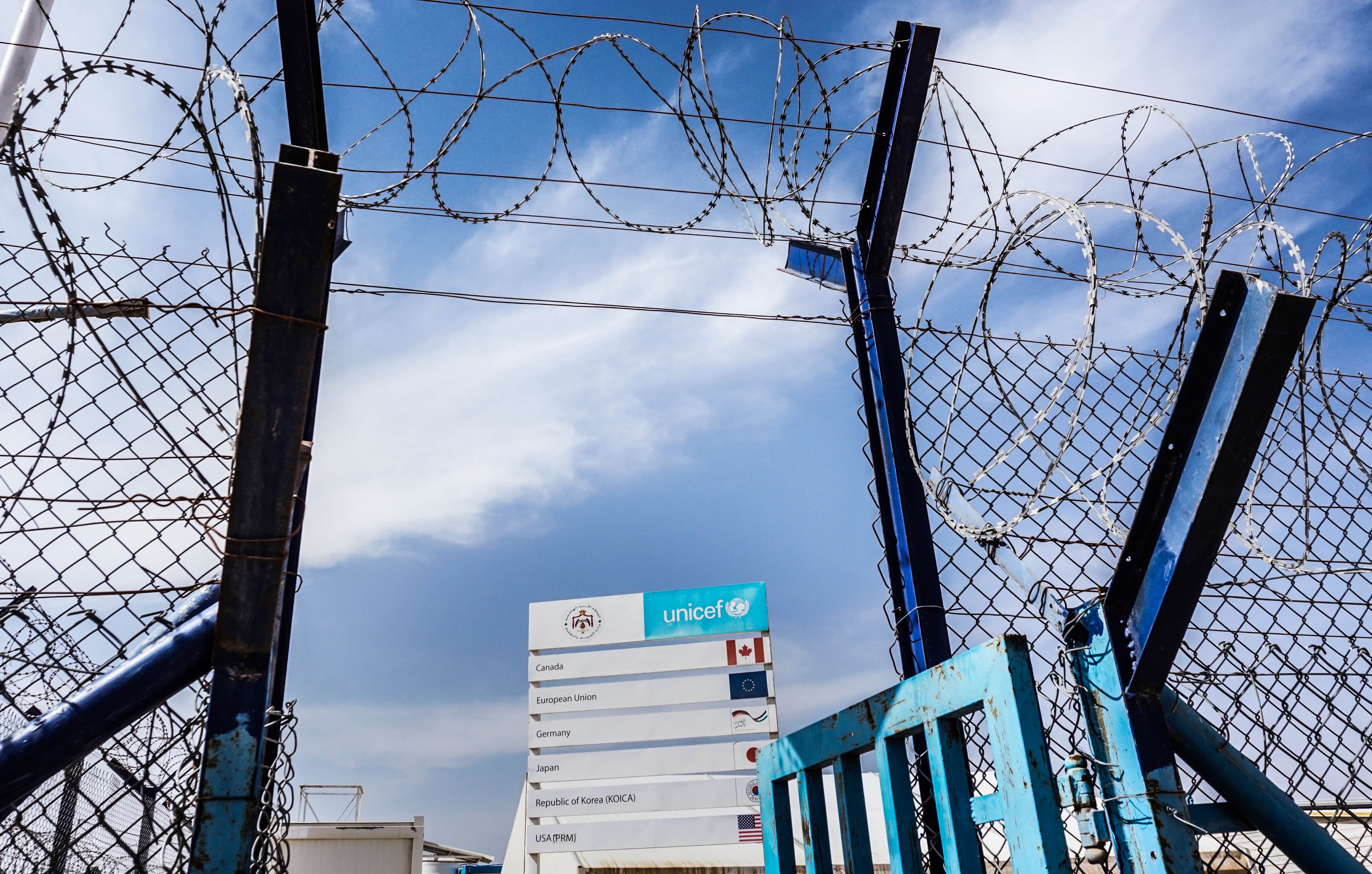
“He also described how large the camps were and the poor conditions that each family or group of people had to live in. He said something along the lines of “I guess its better than being shot at”. Our class definitely gave me a better ground to understand what he was talking about. We spent a good amount of time on ascribed statuses and this relates directly to the refugees. They did not choose this for themselves but were unfortunately born into this situation.”
Aid workers tend to see both the worst and the best of humanity, oftentimes in the same day or even hour. When J related anecdotes about the resilience of some refugees they were struck.
“J’s Skype call in class taught me a lot about aid workers and the current struggle they have daily. I learned from J that at the end of the day, humans have resilience to get through each day. I learned that there isn’t nearly enough resources available for those who need it, so to continue to work at a lost cause is heroic. I learned that refugees being refugees are their ascribed as well as master status. Knowing this, I felt more sorry for the cause and feel worse than I already do. Obviously they cannot help being a refugee, but living below the poverty line is insane and knowing what that budget looks like only breaks my heart for them.”
These next two sum up why I invited an Evil Genius to class.
“The Skype call from J really opened my eyes to the problems and challenges that aid workers around the world face everyday. When we discuss the issues they have in a classroom setting it is all words and paper, you cannot fully grasp the gravity of the situation they are in until you see/hear it from someone on the front lines. My experience in this class learning about the unwritten social guidelines and tolerance limits that form in every social setting helped me understand why emergent mafias and gangs fill the refugee camps. It helped me understand how the cultural differences between the Syrians and Jordanians can cause conflict between them, as a taboo for one culture maybe a norm for the other. Overall, I gained much more insight through his call and the problems he faces everyday by knowing and understanding sociologically the issues present and being able to relate to the methods uses to solve them.
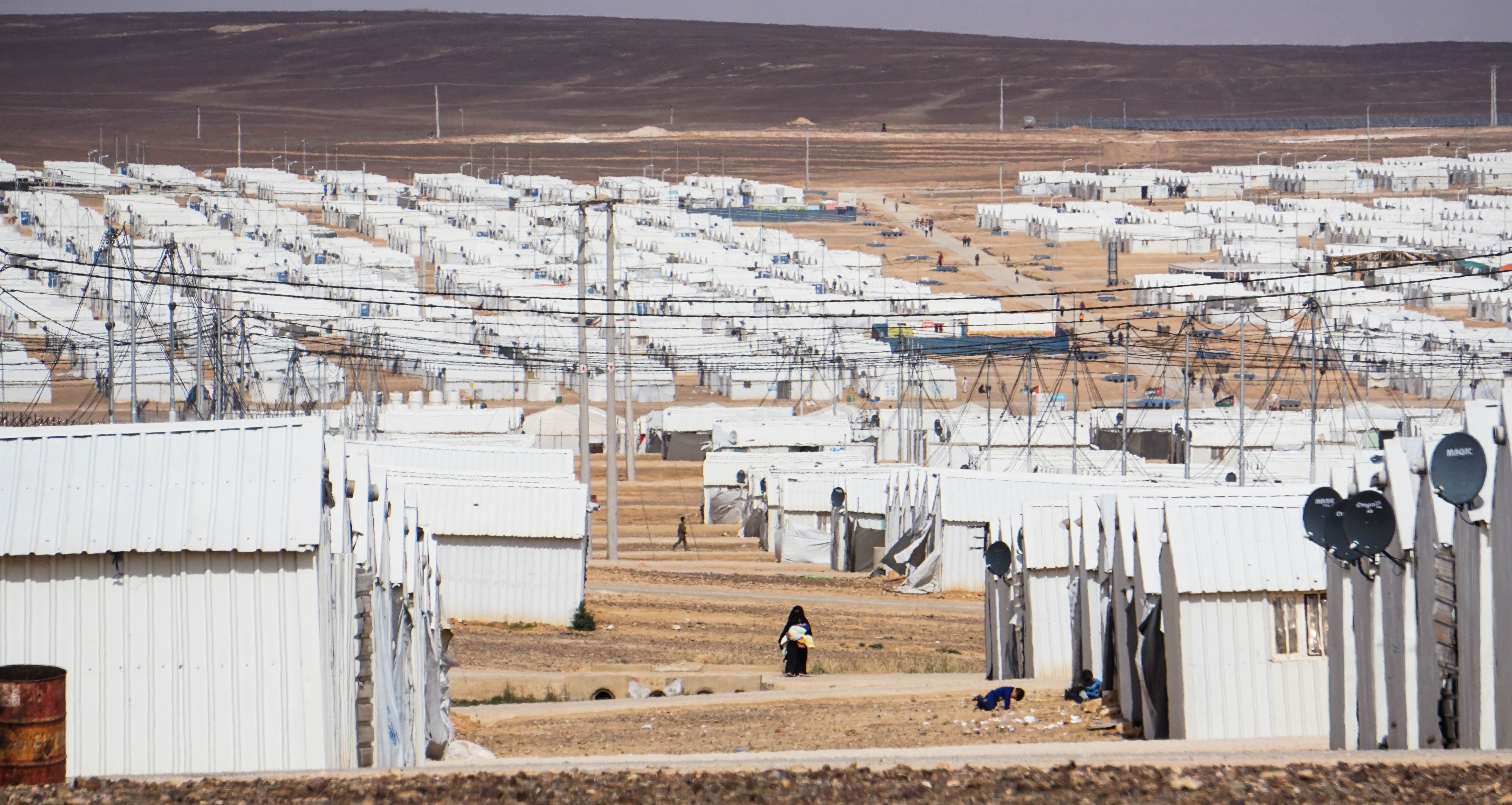
“I have always been a little naïve when it came to the whole refugee topic. I knew that it was a problem, but I never really knew how much of a problem and how much people were really trying to help. I think that listening and talking to J really opened my eyes to the bigger problem around me and going on throughout the rest of the world. Something that I learned was about gender based violence and I thought that was extremely interesting. Another thing that I learned that I would have never even thought of was that while most of the refugees would probably one day hope to ultimately make it to America, right now that is not their main concern. They just want to remain safe and to get away from the violence. They want their friends and families to be safe. I just thought that the main goal for refugees was America. I think that being in this class helped to really broaden my scope of the world. There are so many people who are going through and living in a nightmare. We have to realize that there really are such different things going on in different places other than America. Not just the problem with refugees, but all over the world.”
And, finally, this one concludes with a wise, sober,…and sad observation.
“As J described what was and what is happening to refugees it opened my eyes to just how big of a problem it really was in the world. The phrase that has stuck with me the most would be, “Its like they’re putting a band-aide on cancer.”- (Professor Arcaro). The fact that they are only able to do so much and that they can’t fix the main problem is just a sad situation and even hurts me on the inside. As I was thinking back on how this correlates to past class discussions it made me think about how social deviance will always be there forcing society to adapt to certain situations. That it is humanity’s fault that there are refugees in the first place.” [emphasis added]
Aid workers as heroes
As we said ‘thank you’ to J at the end of the conversation the class gave him a round of applause and afterwards some of them spoke about how much they admired J for what he was doing. One student wrote,
“I am truly inspired by J and his efforts. He has dedicated his life to saving people he has no personal connections or ties to. I thought about this while listening to him in class and I was reminded of something we briefly learned in the beginning of this course: there is no such thing as doing something from the bottom of your heart. As humans, we are constantly keeping tabs on favors that we do for people, and that they do for us. I am not accusing J of acting on selfish motives in any sense- in fact, I am attempting to disprove the theory dispelling kindness. I believe that J is a testament that genuinely kind people do exist, who act selflessly without expecting anything in return.”
I did not take the time to go into the issue of why aid workers do what they do and how most of them -J most definitely included- do not see themselves as ‘heroes’ but rather as ordinary people with a professional career doing the best job they can with the tools at hand.
My take home on this
We all have much to learn, still, about how the global sociocultural/political/economic system works. Did a Skype conversation with an “Evil Genius” do anything to move the awareness needle in a positive direction for my students? I hope so. As a parting comment J answered the question, “What can a well-intentioned university student do to help? with three short suggestions.
- Send money to organizations that can make effective use of additional resources.
- Become/remain politically active and vote for candidates who address global issues positively.
- Consider coming into the humanitarian aid and development sector eventually.
I have faith that many in the class will follow his advice. I hope so.
Post script
At my request J offered some reaction to what the students had written and to our class Skype conversation. Here is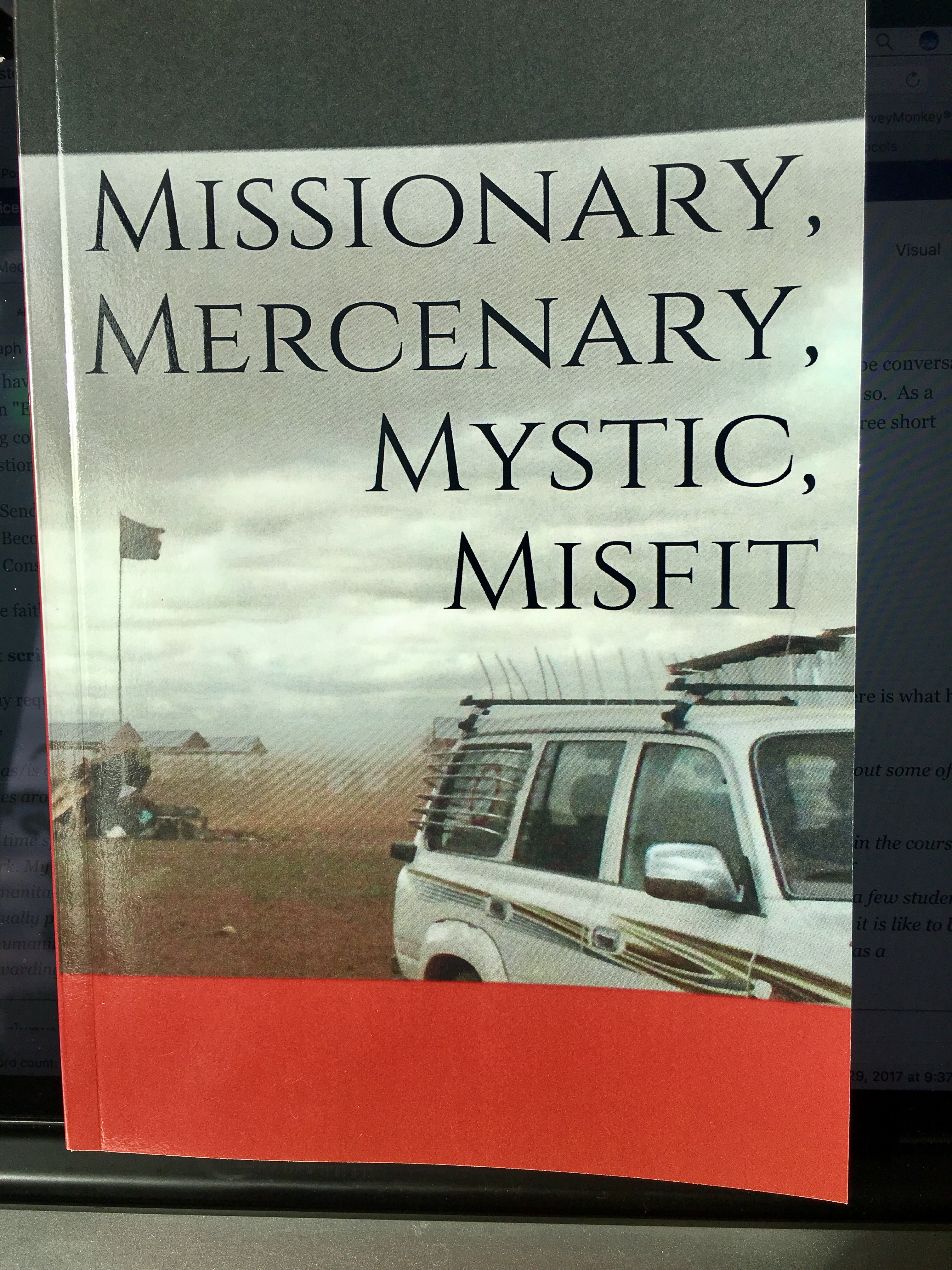 what he said,
what he said,
It was/is good to read student’s reactions. I can tell that many of them are challenged to think more deeply about some of the issues around refugees than before, and that is a good thing!
My time speaking with the class was mostly focused on the issues that many professional humanitarians face in the course of work. My book – MMMM – that they’re reading focuses on the toll that humanitarian work takes in the lives of humanitarians. Very different things. I guess if I could be granted a wish in this case, it would be that at least a few students actually put the two together – a deeper understanding of the issues, along with a more realistic sense of what it is like to be a humanitarian than is commonly protrayed in popular culture – and then may embark on humanitarianism as a rewarding career!
As always, you are welcome to contact me if you have comments.


 Follow
Follow